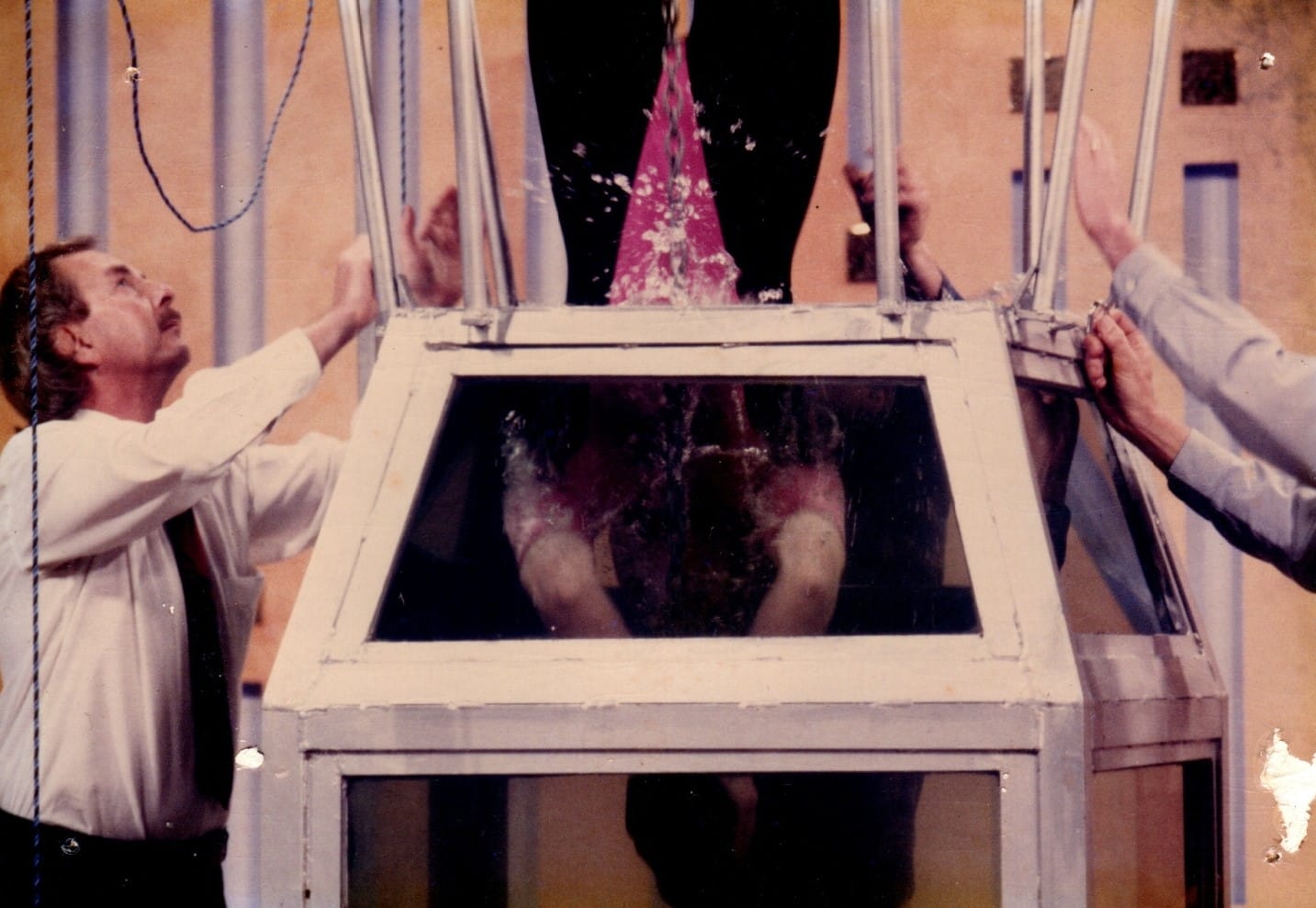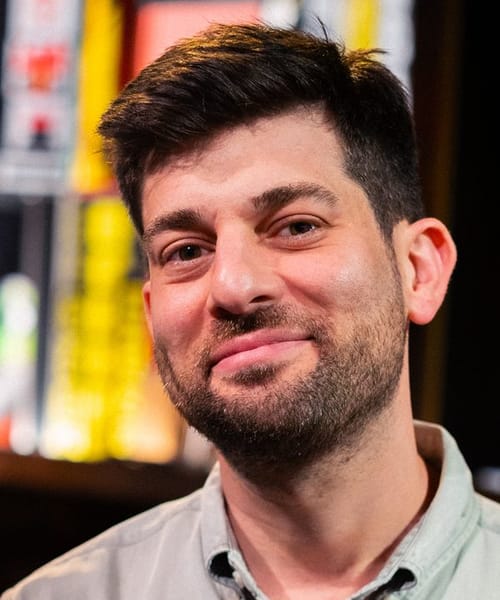After leaving school, Helen Coghlan actually planned to become a hairdresser.
She had grown up surrounded by magic—her father Arthur is a famous illusionist and escapologist in Australia—but had “no intention of working with him whatsoever.” Still, apprenticeships at salons were harder to come by than expected. Helen decided to assist her father, reasoning, “I’ll do it until something better comes along.”
By the time she was 21, she had appeared on Australian national television hanging upside-down locked at the ankles in a version of Houdini’s Water Torture Cell. By 1994, she had given roughly 10,000 performances with Arthur in live shows as well as television.
But most audiences know her from her recent television performances, where she showcases the Coghlan family style of magic. Helen has made six winning appearances on Penn & Teller: Fool Us, receiving millions of views online. This has led to dozens of performances at the Sydney Opera House.
Hairstyling’s loss has been magic’s gain. Audiences have found something unexpectedly wonderful about Helen’s dry presentational style combined with her father’s ingenious inventions. When she talks about her career in magic, Helen is quick to attribute her success and motivation to her father.

Arthur Coghlan, aka “Dad,” was born in Liverpool, England, and held his first job in magic as a demonstrator at Wilf Bennett’s store The Wizard’s Den. There, he met a number of notable magicians from the vaudeville era, including Dante. In 1948, Arthur’s family moved to Australia. He worked with horses and later became a licensed mechanic with a dedicated garage and gas station. He built his own home and raised a family.
In the 1960s, he took over the touring show of a dear friend, a magician, who had died in a tragic accident. Arthur rekindled his love of magic. Armed with an arsenal of new mechanical skills, a creative approach to magic and escapes, and a natural, sometimes Machiavellian instinct for publicity—all in a country with a small number of professional magicians—he quickly put together a successful show. He gained particular notoriety by performing dangerous escapes on national television. One involved escaping from a 240-volt electric chair he had built himself. In another escape, he was locked in a barrel that had been dramatically lowered into a pool of sharks.

